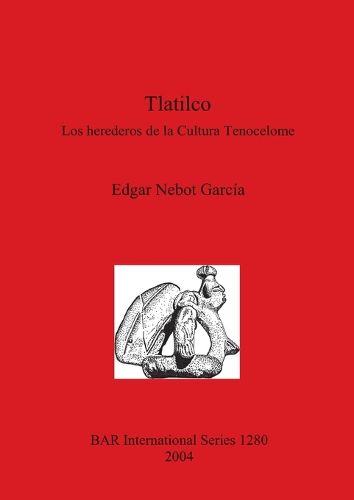Readings Newsletter
Become a Readings Member to make your shopping experience even easier.
Sign in or sign up for free!
You’re not far away from qualifying for FREE standard shipping within Australia
You’ve qualified for FREE standard shipping within Australia
The cart is loading…






This title is printed to order. This book may have been self-published. If so, we cannot guarantee the quality of the content. In the main most books will have gone through the editing process however some may not. We therefore suggest that you be aware of this before ordering this book. If in doubt check either the author or publisher’s details as we are unable to accept any returns unless they are faulty. Please contact us if you have any questions.
Tlatilco, a pre-classical village (800 B.C.) located on the west slope of the Sierra de las Cruces, and known today as Cuenca de Mexico, has been a controversial site for several decades and the subject of much academic controversy. Over 400 burials, including huge volumes of offerings, were found in the course of field interventions between 1942 and 1969, and it became necessary to outline the whole development of the so-called Tlatilco culture from its beginnings to its final disappearance, taking into account every socioeconomic element effecting this society, emphazising the archeological devices and osteological remains. Based on stratigraphic, ceramic and funeral data, and related to recent additions, which were the result of many interventions in the Mexican Republic as well as Central and South America, a new chronology of the nuclear site is put forward. Moreover, with the proper operation of contextual data and the use of theoretic models, the conclusion reached is that the Tlatilcan society was egalitarian and that it was also possible to detect assorted specialists focused on economic and ideological activities. Subsistence means, religion, and leisure activities were taken into consideration.
$9.00 standard shipping within Australia
FREE standard shipping within Australia for orders over $100.00
Express & International shipping calculated at checkout
This title is printed to order. This book may have been self-published. If so, we cannot guarantee the quality of the content. In the main most books will have gone through the editing process however some may not. We therefore suggest that you be aware of this before ordering this book. If in doubt check either the author or publisher’s details as we are unable to accept any returns unless they are faulty. Please contact us if you have any questions.
Tlatilco, a pre-classical village (800 B.C.) located on the west slope of the Sierra de las Cruces, and known today as Cuenca de Mexico, has been a controversial site for several decades and the subject of much academic controversy. Over 400 burials, including huge volumes of offerings, were found in the course of field interventions between 1942 and 1969, and it became necessary to outline the whole development of the so-called Tlatilco culture from its beginnings to its final disappearance, taking into account every socioeconomic element effecting this society, emphazising the archeological devices and osteological remains. Based on stratigraphic, ceramic and funeral data, and related to recent additions, which were the result of many interventions in the Mexican Republic as well as Central and South America, a new chronology of the nuclear site is put forward. Moreover, with the proper operation of contextual data and the use of theoretic models, the conclusion reached is that the Tlatilcan society was egalitarian and that it was also possible to detect assorted specialists focused on economic and ideological activities. Subsistence means, religion, and leisure activities were taken into consideration.